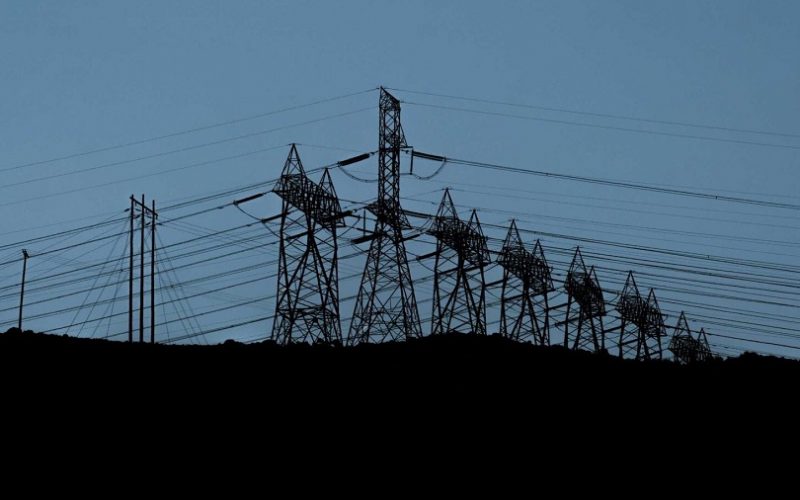Salem, OR – Oregon legislators are considering a series of bills aimed at curbing the power of private, investor-owned monopoly utilities, with the goal of limiting how and when these utilities can raise rates and ensuring that customers aren’t unfairly burdened. The proposed legislation comes in response to five consecutive years of residential rate hikes that have led to record levels of power and gas shut-offs, affecting nearly 70,000 households in 2024 alone. As energy costs continue to rise—electricity rates are up 50% and natural gas prices nearly 40% higher than five years ago—Oregonians are calling for more oversight and consumer protections.
The Bills and Their Purpose
At least six bills have been introduced this legislative session, backed primarily by environmental groups, social justice advocates, and the Citizens’ Utility Board (CUB). These groups argue that Oregon’s monopoly utilities are not incentivized to contain costs or serve customers fairly, as their profits are largely tied to infrastructure investments that are guaranteed a return by the Public Utility Commission (PUC). This system, they argue, encourages utilities to prioritize expansion over cost-saving measures.
Among the most prominent bills are Senate Bill 688, Senate Bill 88, House Bill 3179, and House Bill 3546, each tackling a different aspect of utility regulation.
Senate Bill 688: Tying Rate Increases to Performance
Senate Bill 688, sponsored by State Senators Khanh Pham and Jeff Golden, seeks to give the Oregon Public Utility Commission the authority to require utilities to meet specific performance targets before they can raise rates. These targets include reducing greenhouse gas emissions, cutting capital and energy costs, investing in community solar and microgrids, and ensuring low-income Oregonians are not disconnected from power.
Supporters argue the bill would address the root of rising costs—utilities’ financial incentives to make costly, unnecessary investments at the expense of consumers. However, Portland General Electric (PGE) has opposed the bill, claiming that utilities are already meeting many of the targets proposed by the legislation. Despite receiving widespread support from environmental and consumer advocacy groups, the bill has stalled in the Ways and Means Committee since late March.
Senate Bill 88: Banning Customer-Funded Lobbying
Senate Bill 88 takes aim at the practice of utilities passing on the costs of lobbying, lawsuits, political contributions, and marketing to customers. Under current law, utilities can request rate hikes to cover these expenses, but Senate Bill 88 would prohibit such practices, forcing utilities to cover these costs on their own. The bill has garnered significant support from CUB and environmental organizations, who argue that this is a matter of fairness and transparency in utility pricing.
However, opposition has come from industry groups, including the Northwest Gas Association and the Local 290 Plumbers and Steamfitters union, who warn that the bill could lead to cost-cutting in other areas, potentially threatening jobs and undermining union standards in the construction of energy infrastructure. The bill currently sits in the Senate Rules Committee after a public hearing in March, with no vote yet scheduled.
House Bill 3179: Limiting Rate Increases and Protecting Consumers
The FAIR Energy Act, or House Bill 3179, introduces several key measures designed to protect consumers from unpredictable rate increases. The bill would limit utility rate requests to once every 18 months and mandate that any rate increases take effect only before November 1 or after March 31, helping to avoid sudden spikes during high-demand winter months. Additionally, it would require the PUC to consider the cumulative impact of rate increases over time and evaluate company profits before approving any new hikes.
Supporters, including lawmakers and local governments, argue that the bill would provide more transparency and fairness in the rate-setting process, especially as many Oregonians are struggling to pay their energy bills. However, it faces opposition from utility companies and business associations, who contend that it could hinder their ability to maintain infrastructure and respond to market fluctuations.
House Bill 3546: The POWER Act and Data Centers
House Bill 3546, also known as the POWER Act, seeks to create a separate customer class for data centers—some of the largest and fastest-growing energy consumers in the state. By establishing a distinct classification for these entities, the bill would ensure that the costs of infrastructure upgrades required to power data centers are not passed onto residential and commercial customers. The bill has strong bipartisan support and has received near 200 letters in favor, including from environmental groups and several city mayors.
However, Amazon Web Services and other data center companies have raised concerns, arguing that the bill could stifle technological growth and hinder their ability to expand in Oregon. Despite the opposition, the bill passed the House in April with a solid 41-16 vote and is now under review by the Senate Energy and Environment Committee.
Legislative Roadblocks and Delays
While the bills have garnered substantial support from advocacy groups, they have faced significant resistance from Oregon’s monopoly utilities, which argue that these measures could undermine their financial stability and ability to provide reliable services. Additionally, the bills have encountered delays in the legislative process. Several measures are currently stalled in various committees, with no clear timeline for when they will be voted on.
For example, Senate Bill 688, despite passing the Senate Energy and Environment Committee, has been sitting in the Ways and Means Committee for over a month, without a scheduled vote. Similarly, Senate Bill 88 and House Bill 3179 are still in early stages, awaiting further hearings or amendments.
Governor’s Support and the Future of Utility Reform
Governor Tina Kotek has expressed her support for several of these bills, emphasizing the need to keep utility rates low and provide the PUC with more tools to hold private utilities accountable. Kotek has also suggested that large energy consumers, such as data centers, should pay a larger share of the costs associated with the state’s energy infrastructure.
As the legislative session progresses, it remains to be seen whether these proposed reforms will gain enough traction to pass. If successful, these bills could represent a significant shift in how Oregon regulates its monopoly utilities, ensuring that the interests of consumers, particularly those in vulnerable communities, are better protected against rising energy costs.
Oregon lawmakers are currently at a crossroads, as they navigate a complex debate over how to balance the financial interests of utilities with the needs of consumers. With energy costs continuing to rise and more Oregonians struggling to keep the lights on, the outcome of these legislative proposals could have far-reaching implications for the state’s utility regulation and the affordability of essential services. The coming weeks will be crucial in determining whether these bills can overcome political hurdles and bring much-needed reform to the state’s energy sector.











